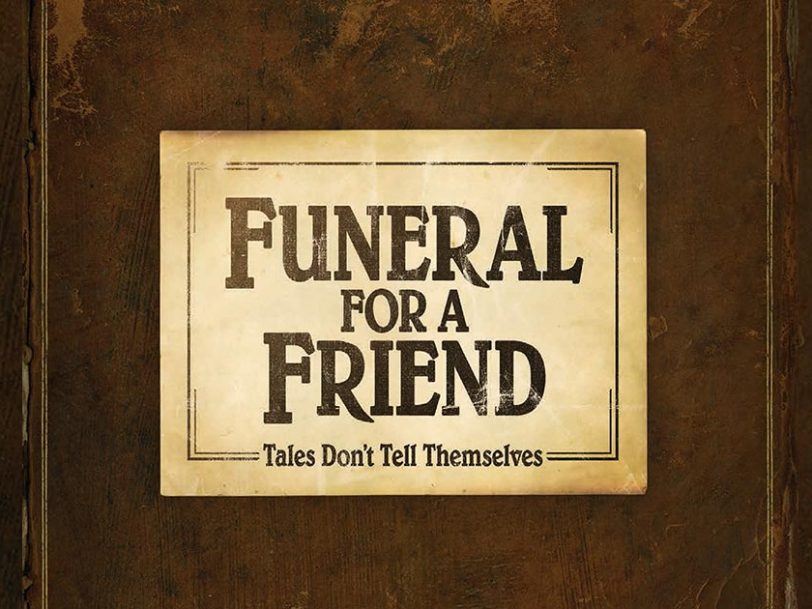After their debut album, Casually Dressed And Deep In Conversation, lit the touch-paper, and its follow-up, Hours, cemented Funeral For A Friend’s place as one of the most vital rock bands on the planet in the mid-2000s, the group found themselves crawling out from an intense four-and-a-half-year period that had seen them reach the highest highs, but now left them facing one almighty crash. “We were all pretty fucked – mentally, creatively, physically,” frontman Matt Davies-Kreye tells Dig! of the group’s condition as they began work on what would become their third album, Tales Don’t Tell Themselves. “We should have taken a break for about a year or so before we even thought about getting together again to make something,” he adds. “Literally, there was nothing to write.”
Where some groups may have opted to take a breather – or, at least, record a less intense record with a more stripped-back approach – what eventually emerged was arguably the band’s most ambitious work of all: a concept album in which Davies-Kreye expressed his emotional state through the tale of a fisherman lost at sea, desperate to return home to his wife. “I don’t know why I thought a concept album was going to be appropriate,” he laughs today. “I needed to ground myself in something. Because of my personality, I needed to find something to hold on to.”
Listen to ‘Tales Don’t Tell Themselves’ here.
“The concept album is the absolute death-knell of any band”
Looking to change the way they usually worked, rather than have Davies-Kreye and guitarist Kris Roberts’ ideas form the backbone of their new project, the group initially adopted a more democratic approach. “We tried to do something new with this third album, where we all wanted to sit in there and write from scratch,” the singer explains. “No previous ideas running around, just jamming.” Hiring a no-frills rehearsal space lacking even windows, the group quite literally boxed themselves in trying to come up with new material through gruelling eight-hour sessions, held from 11am until 7pm every day. Burning out after years of bouncing from the studio to the road and back again, however, “Nothing we wrote was connecting with us at all,” Davies-Kreye says. “We couldn’t find a way to make it work… It was the typical situation of: these dudes are really sick of each other but don’t know how to communicate.”
Looking to create some space between himself and the intensity of the situation, Davies-Kreye began working on a country-folk solo project, hunkering down in a friend’s small studio until the small hours of the morning, “in order to make something that didn’t have any stress. Something completely different, just to prove to myself that I could,” he says. Marriages, newborn children and homemaking also conspired to keep the group at arm’s length from their music. “It was a real uphill struggle, to the point where all the usual things that I could connect with, with music, just weren’t doing it for me anymore.”
And then inspiration came from an unlikely place: prog rock.





